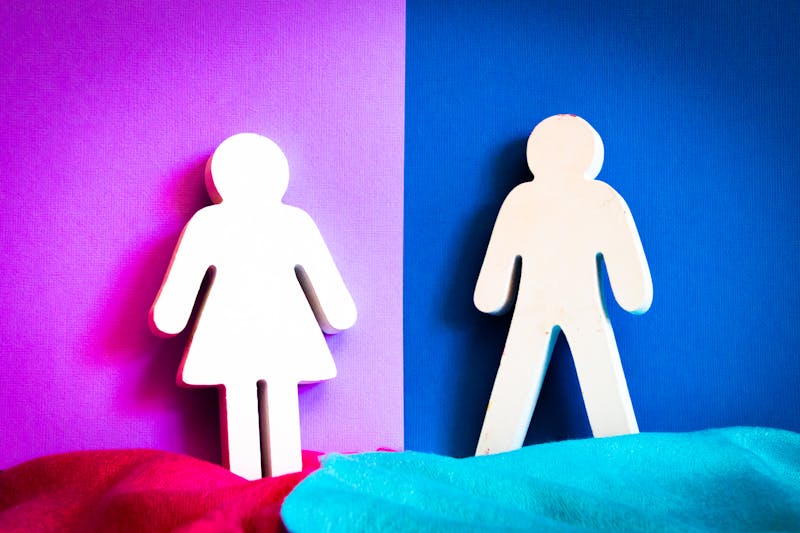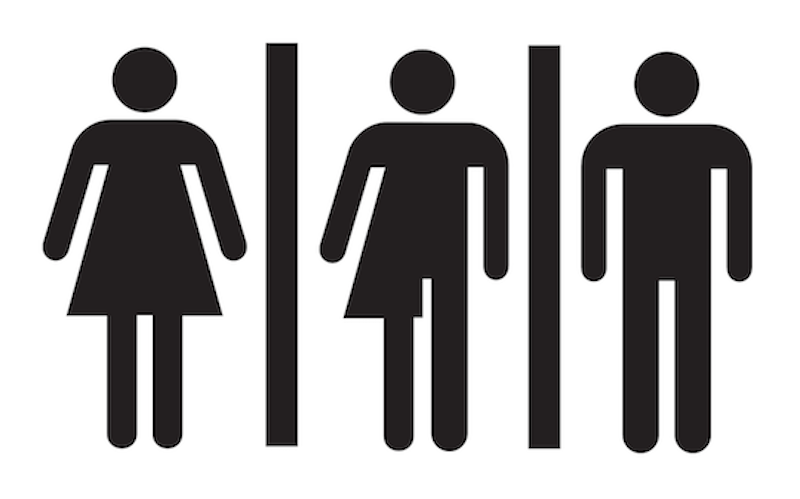The Ultimate Guide to Gender in French

Unlike English, French is what is known as a gendered language. This means that nouns have a gender and you need to know it in order to properly speak and understand the language. Many languages are gendered languages, but if you don't already know a gendered language, the concept can be hard to grasp. Even if you do speak another gendered language, understanding gender in the French language can still be a nuisance.
In this guide, we'll take an in-depth look at gender in French and give you some tools for mastering it. With some time and practice, you'll have a clear understanding of how gender works in French, not just when it comes to people, but for all nouns, pronouns, adjectives, and even articles.

Why Does Gender Matter?
As we've already mentioned, gender impacts nouns, pronouns, and adjectives in French. It also sometimes has a role in French verb conjugations. Because of this, it's really important to learn new nouns with their gender so that as you progress in your French learning journey, you can correctly conjugate and use all the nouns you know.
In the grand scheme of things, though, no, it doesn't really matter if a chair is feminine or masculine. In most cases, French speakers will be able to understand you even if you use the wrong gender for a noun. Sometimes, though, a word may sound similar or identical to another and the only difference is its gender. In these cases, gender is the only thing that indicates that you're talking about one thing and not the other, such as with un bar (a pub/bar) and une barre (a bar/rod).

What Genders Are There in French?
Every language determines gender a little differently, but in French, there will always be only masculine and feminine nouns. These are the only two genders in French, with only one exception that we'll talk about later on. Because of this, when you learn new nouns, you have a 50/50 chance of correctly guessing the gender on the first try.
Unfortunately, French doesn't have an easy list of gender indicators. French nouns end in any number of ways and there isn't a clear cut masculine-feminine line that you can easily walk. Instead, you'll have to commit to memorizing the gender of a word. In a few cases, however, you can be more sure of a noun's gender because of its ending.
Masculine French
Masculine is the default gender in French. This means that when it comes to French pronouns, adjectives, and verbs, you won't have to do anything special for masculine nouns. Unless a noun is plural, nothing changes. If it is, then in the case of adjectives and some verb conjugations, you simply add an -s at the end of it.
Since masculine is the default gender in French, it's important to know how to identify it. I know I said there weren't any clear cut indicators of gender (and there really aren't!), but here is a list of noun endings that will belong to a masculine noun more often than not:
- -an, -and, -ant, -ent, -in, -int, -om, -ond, -ont, -on
- -eau, -au, -aud, -aut, -o, -os, -ot
- -es, -et
- -ail, -eil, -euil, -ueil
- -age, -ege, – ème
- -ome, -aume, -isme
- -it, -est
- -ou, -out, -out, -oux
- -i, -il, -it, -is, -y
- -at, -as, -ois, -oit
- -air, -er, -erf, -ert, -ar, -arc, -ars, -art, -our
- -al, -el, -il, -ol, -eul, -all
- -if, -ef
- -ac, -ic, -oc, -uc
- -er, -é
- -am, -um, -en
It's a long list, I know. Masculine nouns don't consistently end in similar ways and even if you do memorize this list and stick to it, you won't be correct 100% of the time. There are feminine nouns that use some of these endings, but you have no way of knowing that if you simply memorize "masculine" endings and "feminine" endings.
If you want to memorize a few endings, memorize the ones that are bolded. Those are the ones that I find are the most helpful to know as they're more common.
Feminine French
If a noun is not masculine, then it will be feminine. This can make things easier as you always have a 50/50 shot when you have to guess, but just like masculine nouns, feminine ones don't have any special indicators.
Feminine nouns require a bit more work when it comes to French pronouns and certain past tense verb conjugations. This means it's important to know when a word you're using is feminine, as it can lead to more confusion than with masculine nouns.
While this is by no means a complete list of feminine endings, here are some endings that are more likely than not going to indicate a feminine noun:
- -aie, -ée, -ie, -ue
- -ette, -te, -ete, – ête, -atte, -otte, -oute, -orte, -ante, -ente, -inte, -onte
- -aille, -eille, -ouille
- -alle, -elle, -ille, -olle
- -euse, -ouse, -ase, -aise, -ese, -oise, -ise, -yse, -ose, -use
- -ave, -eve, -ive
- -asse, -ace, -esse, -ece, -aisse, -isse/-ice, -ousse, -ance, -anse, -ence, -once
- -iere, -ure, -eure
- -enne, -onne, -une, -ine, -aine, -eine, -erne
Again, I've bolded the endings that I feel are most useful to know if you really want to memorize specific endings.
In addition to this list, though, feminine endings do almost have a trick. Much of the time, if an ending has a double consonant followed by an -e or even just an -e, it will be feminine. This isn't true all of the time, but it can be an easier trick to memorize than the whole list. Just keep in mind that some masculine nouns will end with -e as well.

The Case for Gender Neutral French
The idea of something or someone being non-binary or gender neutral is new in French. As you have seen, all nouns are either feminine or masculine so when talk of gender neutral pronouns and identifiers began in French, it was a tad more complicated than in non-gendered languages such as English.
As a whole, French is still masculine-feminine. However, there are new pronouns being used by some people in an attempt to allow for non-binary identities. While nouns will always be either masculine or feminine, it's possible you may meet or know people that prefer the new, gender neutral pronouns.
The guide linked above does a good job at explaining these new pronouns as well as how to use them. It is definitely worth taking a look. Because these pronouns are so new and their use is not wide spread, there can be inconsistencies. The guide talks about these and makes sure you're aware of all the possibilities.
While using new pronouns in a language can be confusing, it will be no more confusing than memorizing the standard masculine-feminine binary of French. You may be faced with a bit of variety, but if you're aware of the existence of these pronouns, then you'll be able to recognize them no matter which form someone uses.

Keep On Learning French
While I know there was no clear "this is when a noun is masculine/feminine" instruction, I hope this guide has been helpful in navigating gender in French. Don't feel discouraged if you don't master it immediately; even I still struggle sometimes. French certainly does not make it easy to know the gender of a word.
The reality is that it's often best to simply learn the gender of a noun when you learn the noun. Don't just memorize bâteau. Memorize un bâteau so you will remember that it's masculine. This will make more advanced concepts easier as you won't have to always question the gender of a noun.
